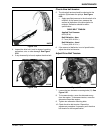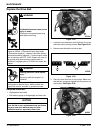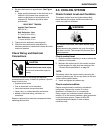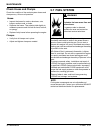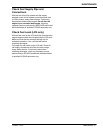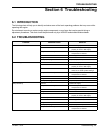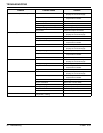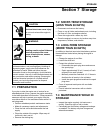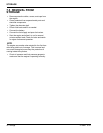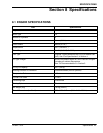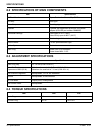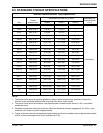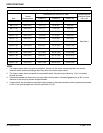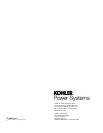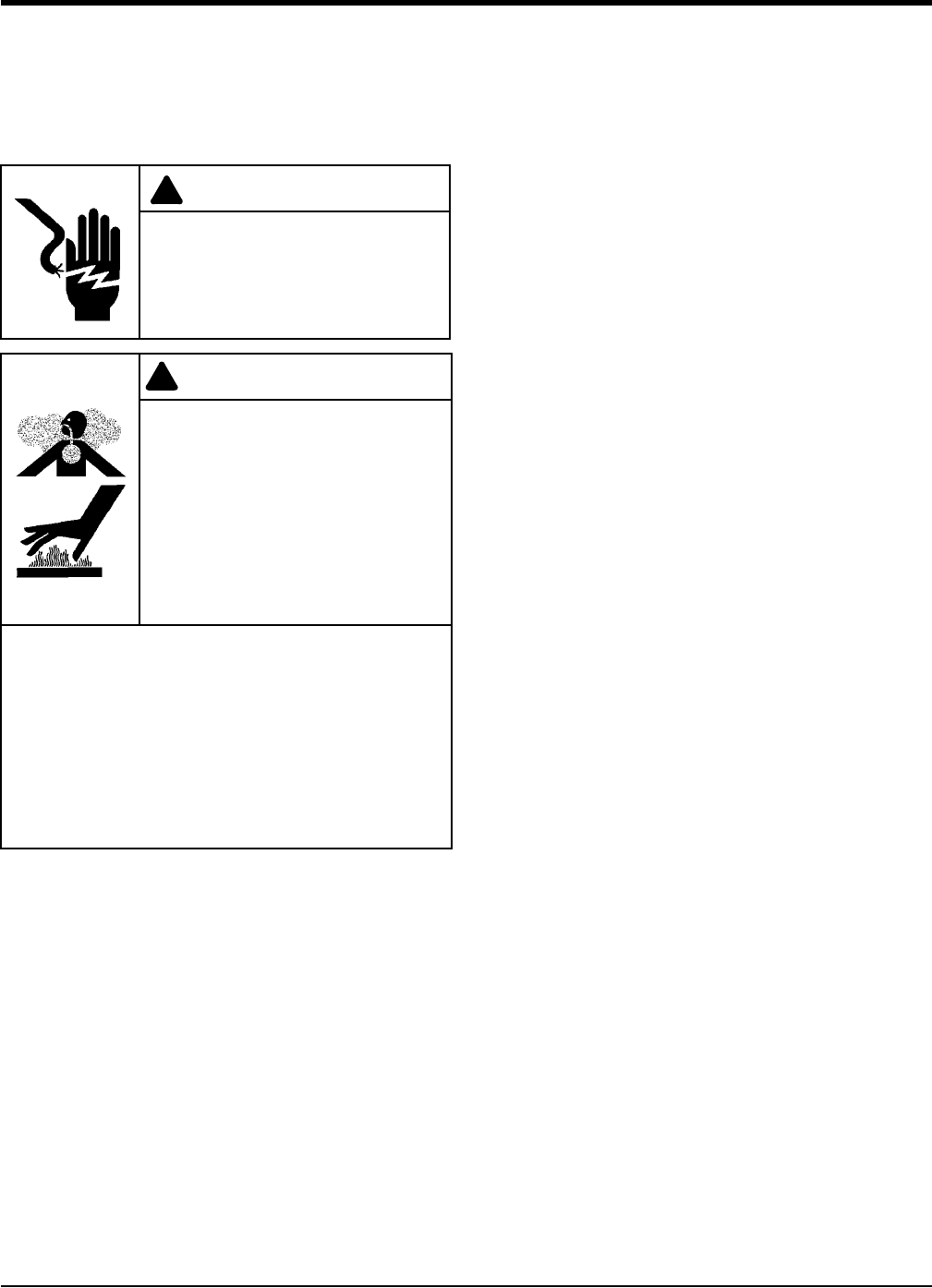
STORAGE
TP-6901 6/14 Storage 41
Section 7 Storage
7.1 PREPARATION
If you plan to take the engine out of service for an
extended period of time, prepare the engine according
to the tasks described in this section. These preventive
measures will help to protect your engine from the
cumulative effects of rust and deterioration while it is
not being used.
• Perform scheduled periodic maintenance tasks.
• Make all necessary repairs and adjustments.
• Close the fuel valves and disconnect the fuel
supply.
• Clean the outside of the engine. Wipe away all
visible dirt, dust, and oil.
• Remove the starting key.
7.2 SHORT-TERM STORAGE
(LESS THAN 30 DAYS)
• Disconnect and remove the battery.
• Cover or cap all intake and exhaust ports, including
fuel lines, air filter, and engine exhaust.
• Cover the engine with a clean, dry cloth.
• Store the engine in a secure, dry location away from
trespassers, children, and animals.
7.3 LONG-TERM STORAGE
(MORE THAN 30 DAYS)
In addition to the short-term tasks listed above, perform
these additional tasks before placing the engine in
storage:
• Change the engine oil and filter.
• Loosen the drive belt.
• Protect the cylinders from rust:
— Disconnect the spark plug wires and remove
the spark plugs.
— Squirt approximately 30 ml (1 ounce) of fresh
engine oil into each cylinder.
— Manually rotate the crankshaft 10–15 times to
distribute the oil evenly in the cylinders.
— Install the spark plugs and reconnect the spark
plug wires.
• Cover all exposed metal parts with a suitable
protectant.
• Coat all electrical connectors with a suitable
protectant.
7.4 MAINTENANCE WHILE IN
STORAGE
• Inspect the engine regularly (at least once a
month). Check for signs of rust or leaks.
• Periodically test the battery voltage and recharge
as needed. The battery may lose charge even
when disconnected.
!
CAUTION
Electrical shock can cause injury.
Do not touch wires while engine is
running.
WARNING
!
Handling caustic engine fluids and
chemical products can cause
severe chemical burns, nausea,
fainting, or death.
Most chemicals such as used engine oil,
antifreeze/coolant, rust proofing agent, inhibiting oil,
degreasing agent, spray paint, and adhesives are
hazardous to health. Read and follow the user
information found on the packaging. Avoid inhalation
and skin contact. Use only in well-ventilated areas and
use a protective mask when spraying. Store engine
fluids and chemical products in a locked cabinet.
Contact your local recycling center for disposal
information and locations.



